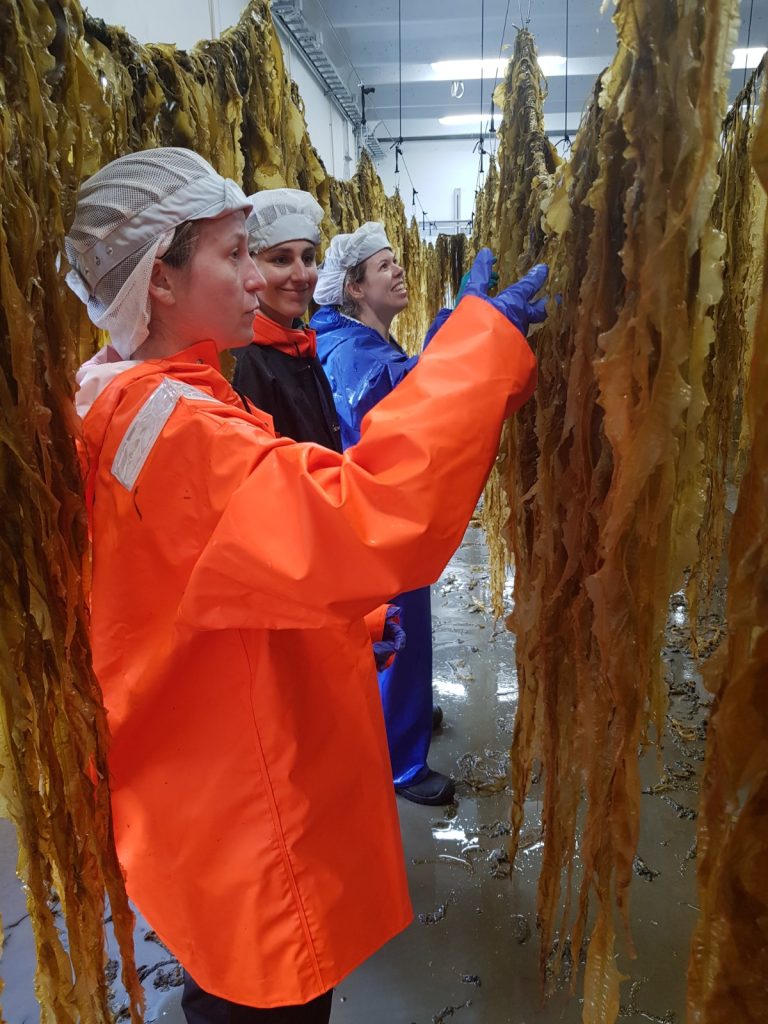SEASEEDS
Improving Sugar Kelp attachment for more efficient farming
Funded
The Netherlands
From 2022
What we are doing
The Project
SEASEEDS employs a multi-dimensional approach to improve sugar kelp attachment to cultivation lines. The research covers aspects of ecology, genetics, microbiome, breeding, developmental biology and even business economics. The project aims to address the cause and consequences of high detachment rates in direct seeding – up to 90% of juvenile sporophytes are lost shortly after deployment. This issue is currently addressed by increasing seed densities, though this approach can become highly inefficient at larger scales. Additionally, uncontrolled detachment leads to variability in efficiency and is affected by weather conditions, substrate choices, seeding techniques, and seedstock quality.
Hortimare closely supports SEASEEDS PhD students by providing sporophytes, gametophytes, expert advice, and facilitating farm trials. Frequent visits of Hortimare researchers to the laboratories of the SEASEEDS researchers at Wageningen University and vice versa, have intensified the collaboration and have led to exciting progress in fundamental and applied research, including the identification of novel methods to improve adhesion. To attract and train talented students, we also co-supervise internships and host interactive excursions, including a visit from ~75 Wageningen students with an interest in seaweed cultivation to our facility each year.
Consortium Partners
- Wageningen University & Research (Laboratories of Cell and Developmental Biology, Microbiology, Plant Breeding and Business Economics, Wageningen Marine Research and Wageningen Economic Research)
- Hortimare B.V.
- Langman Ropes
- North Sea Farmers
- Deltares
- GiMaRIS
- Brandfriend
- Jumbo Supermarkets
The project is primarily funded by NWO.
01-06-2022 / 31-05-2026
(Wageningen University Research)
Collaborators
- The Seaweed Company
- Dr. R. Nijland (WUR)
- Prof. Olivier De Clerck (Ghent University)
- Dr. Thomas Wichard (University of Jena)


It is fantastic to collaborate with Hortimare. Our interests closely align with those of Hortimare and there is high potential to directly apply fundamental knowledge about factors that control seaweed adhesion. Hortimare researchers and our PhD students enjoy working together and operate as a team. These interactions between industrial and academic partners are exactly what is needed to drive the development of technology that can kickstart seaweed cultivation in North-Western Europe.
Tijs Ketelaar, Head of the Laboratory of Cell and Developmental Biology, Wageningen University & Research
